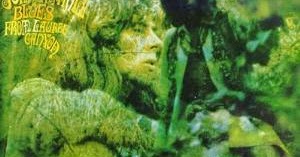John Mayall Bare Wires Rar
Available in: CD. Bare Wires was the first Bluesbreakers album of new studio material since. Find album reviews, stream songs, credits and award information for Bare Wires - John Mayall & the Bluesbreakers, John Mayall on AllMusic - 1968 - Bare Wires was the. Find a John Mayall's Bluesbreakers* - Bare Wires first pressing or reissue. Complete your John Mayall's Bluesbreakers* collection. Shop Vinyl and CDs. Is Bare Wires the best album by John Mayall And The Bluesbreakers? BestEverAlbums.com brings together thousands of 'greatest ever album' charts and calculates an.
John Mayall performing in 2004 Background information Born ( 1933-11-29) 29 November 1933 (age 84), England Genres,,,, Occupation(s) Musician, songwriter, producer Instruments Vocals, guitar, harmonica, keyboards, piano, synthesizers, organ, drums Years active 1956–present Labels,,,,, One-Way Records,,, Associated acts,,,,,, Website John Mayall, (born 29 November 1933) is an English singer, guitarist, organist and songwriter, whose musical career spans over fifty years. In the 1960s, he was the founder of, a band which has counted among its members some of the most famous blues and musicians. They include,,,,,,,,,,,,,,,, and. John Mayall with Band ( and Jay Davenport) (2017) Born in, Cheshire in 1933, Mayall was the son of Murray Mayall, a guitarist and music. From an early age, John was drawn to the sounds of American blues players such as,, and, and taught himself to play the piano, guitars, and harmonica. Mayall spent three years in Korea for and, during a period of leave, he bought his first electric guitar.
Print Out Graffiti Stencils. Back in England, he enrolled at Manchester College of Art (now part of ) and started playing with semi-professional bands. [ ] After graduation, he obtained a job as an art designer but continued to play with local musicians. In 1963, he opted for a full-time musical career and moved to London. His previous craft would be put to good use in the designing of covers for many of his coming albums. [ ] Since the end of the 1960s Mayall has lived in the US. A brush fire destroyed his house in in 1979, seriously damaging his musical collections and archives. Mayall has been married twice, and has six grandchildren.

His second wife, Maggie Mayall, is an American blues performer, and since the early 1980s took part in the management of her husband's career. The pair divorced in 2011 and Maggie wrote online about the experience. In 2005 Mayall was appointed (OBE) in the Honours List. [ ] Early years [ ] In 1956, with college fellow Peter Ward, Mayall had founded the Powerhouse Four which consisted of both men and other local musicians with whom they played at local dances. In 1962 Mayall became a member of the Blues Syndicate.
The band was formed by trumpeter John Rowlands and alto saxophonist Jack Massarik, who had seen the band at a Manchester club and wanted to try a similar blend of jazz and blues. It also included rhythm guitarist Ray Cummings and drummer, whom Mayall already knew. In 1962 John and his band were frequent and popular artists at all night R&B sessions at the 'Twisted Wheel' cellar club in central Manchester. Bbm For Pc Tanpa Bb. Persuaded Mayall to opt for a full-time musical career and move to London, where Korner introduced him to many other musicians and helped them to find gigs. In late 1963, with his band, which was now called the Bluesbreakers, Mayall started playing at the. The line-up was Mayall, Ward, on bass and guitarist Bernie Watson, formerly of and the R&B All-Stars. The next spring Mayall obtained his first recording date with producer.
The band, with Martin Hart at the drums, recorded two tracks: ' as well as 'Mr. Shortly after, Hughie Flint replaced Hart and took the guitar from Bernie Watson. This line-up backed on his British tour in 1964. Mayall was offered a recording contract by Decca and, on 7 December 1964, a live performance of the band was recorded at the Klooks Kleek. A later studio-recorded single, 'Crocodile Walk', was released along with the album, but both failed to achieve any success and the contract was terminated. In April 1965 former guitarist replaced Roger Dean and John Mayall's career entered a decisive phase.
Mid-1960s through 1971 [ ]. Mayall in 1970 Eric Clapton as guitarist, 1965–66 [ ] In 1965, with as their new guitar player, the Bluesbreakers began attracting considerable attention. That summer the band cut a couple tracks for a single, ' b/w 'Telephone Blues' (released in October).